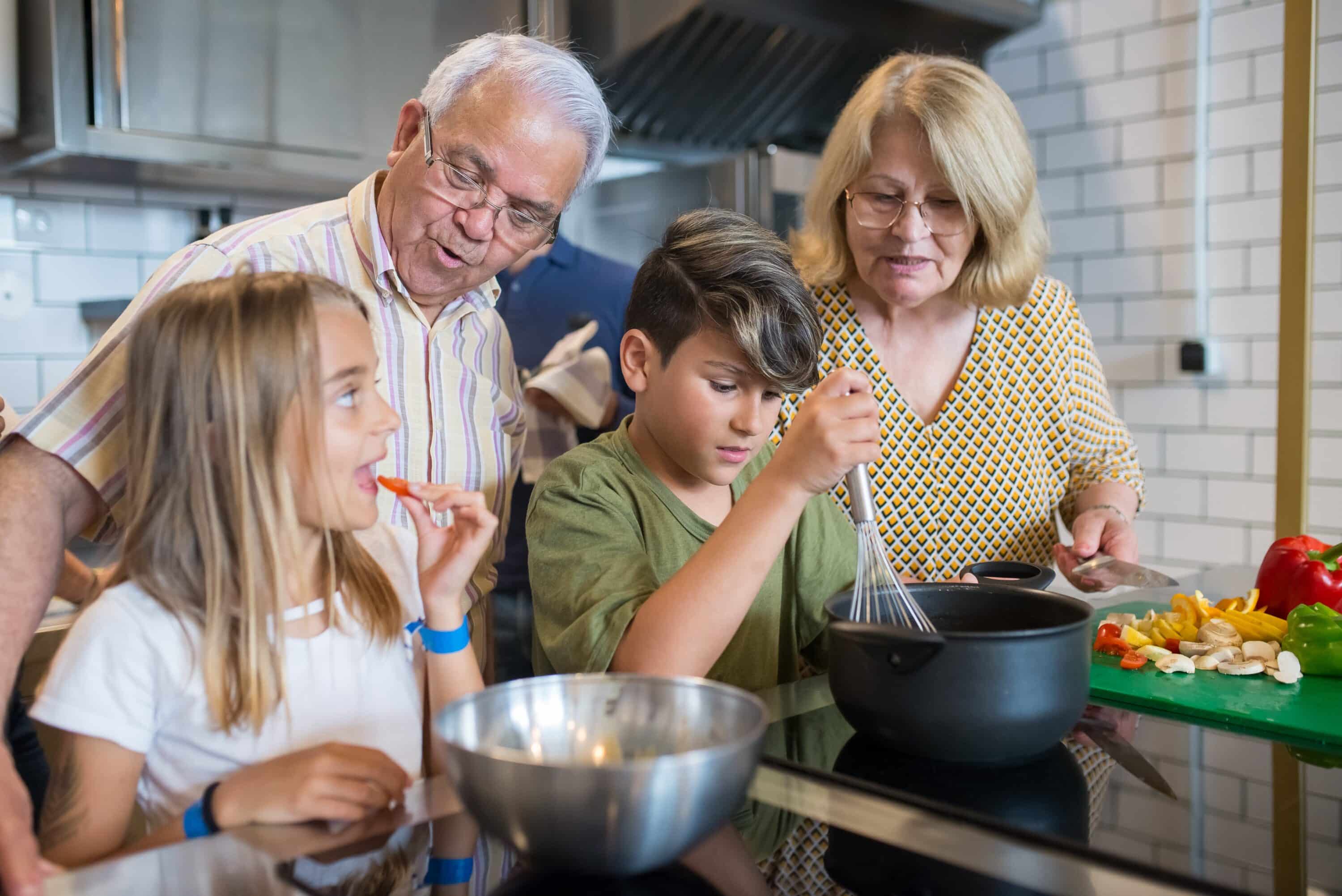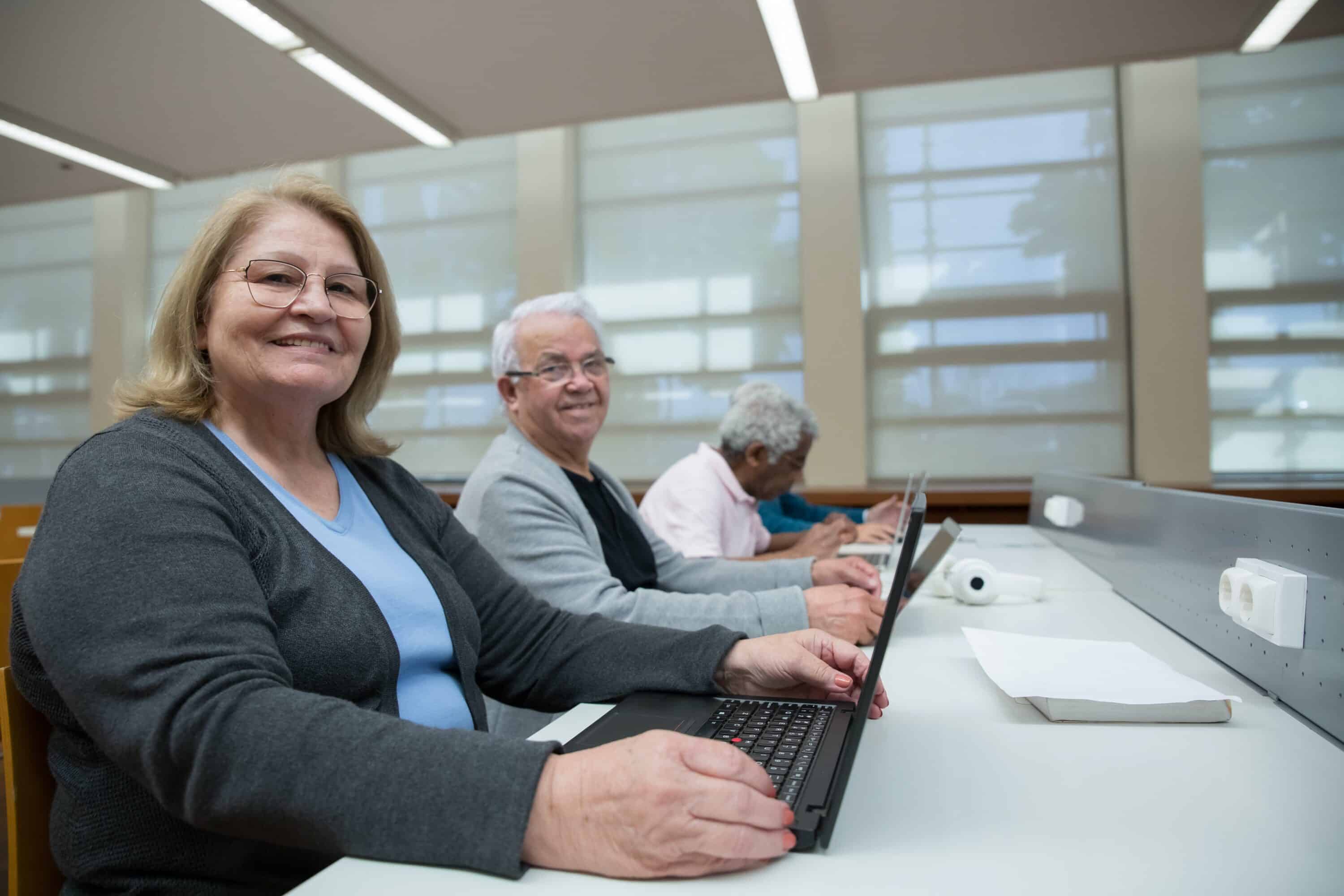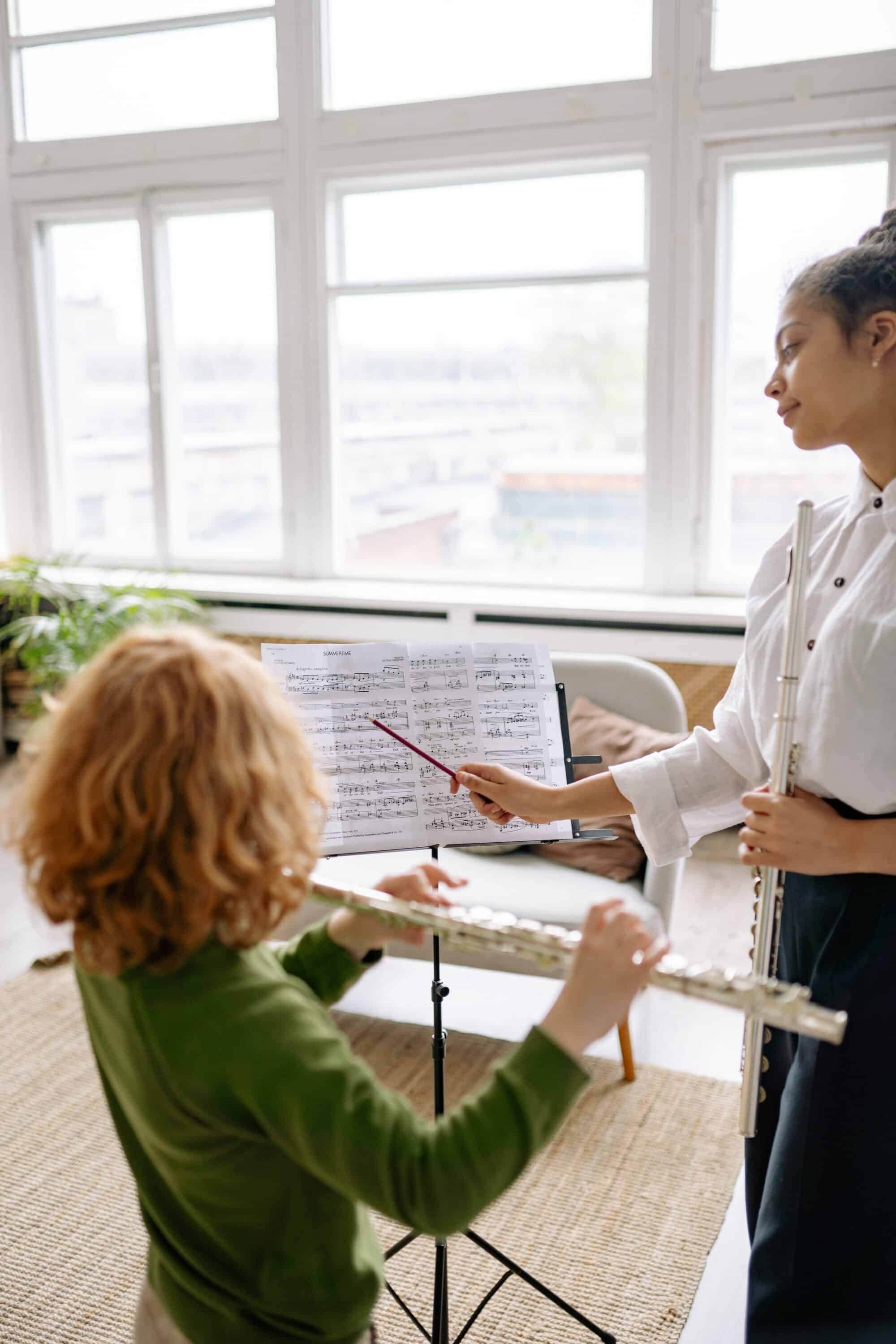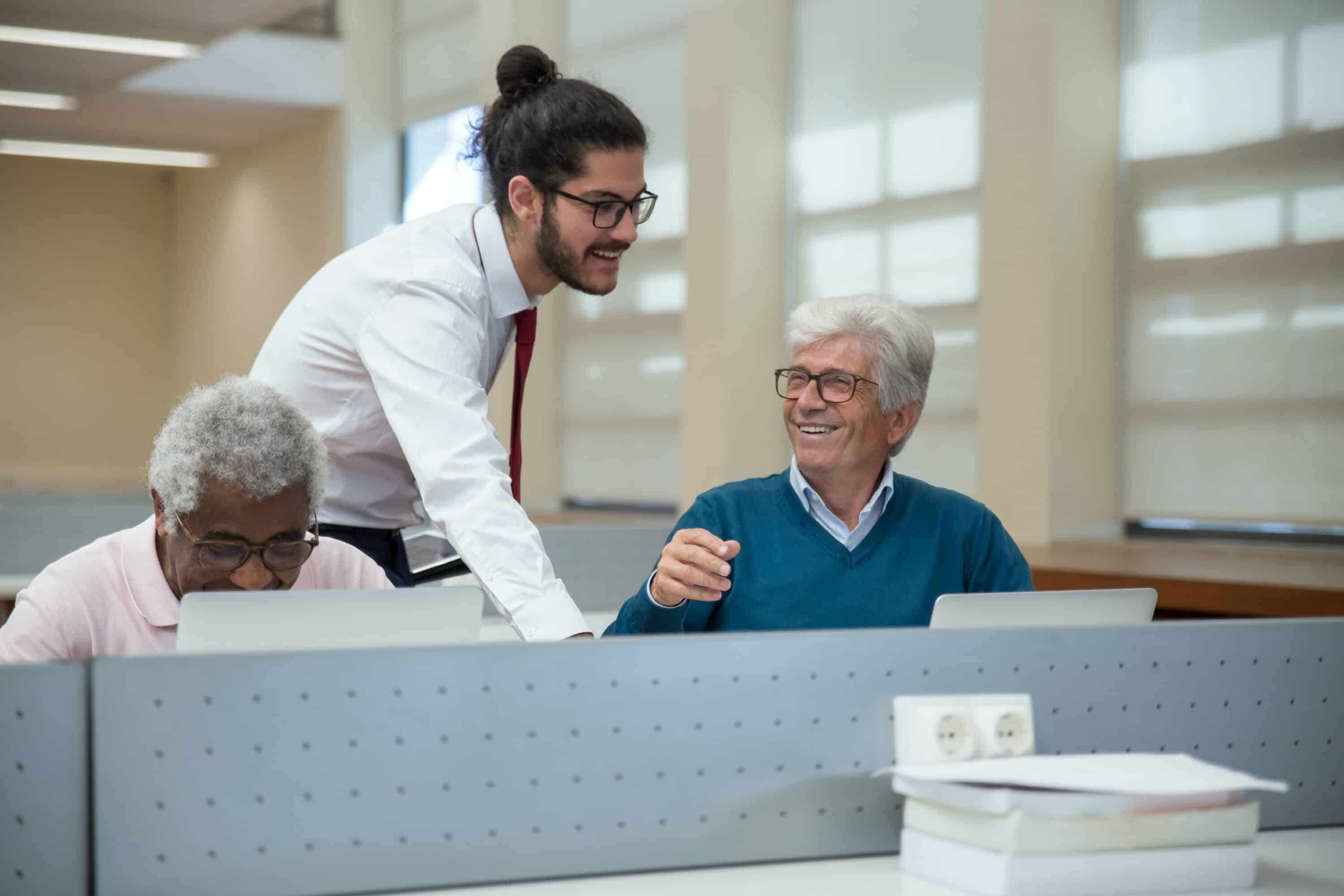Unlocking Potential: Learning New Skills After Retirement

Retirement marks not just an end to the nine-to-five routine but also the beginning of a thrilling chapter filled with possibilities. Unlocking Potential: Learning New Skills After Retirement is about embracing this new phase of life with an open mind and a zest for continual personal growth. After years dedicated to building careers and nurturing families, retirees often find themselves with a wealth of time—time that can be invested in exploring new activities, mastering new disciplines, and pursuing passions that may have been sidelined in the rush of earlier years.
Learning new skills after retirement is more than a way to pass the time. It’s a powerful means to improve cognitive function, enhance emotional well-being, and expand social networks. Whether it’s delving into a foreign language, dabbling in the digital world, or simply picking up that guitar that’s been gathering dust in the corner, every new skill learnt adds another dimension to life’s rich tapestry. Let’s discover how you can make every moment of your retirement not just meaningful but also enjoyable, as you explore the limitless horizon of learning.
CONTENT
Embracing a Learning Mindset in Retirement
Retirement is not a time to stop growing, but rather an opportunity to embrace continual growth in new and exciting ways. By adopting a learning mindset, retirees can unlock a world of possibilities and enrich their lives in ways they may not have previously imagined. It’s a chance to view every new day as an opportunity to learn, grow, and expand one’s horizons.
Embracing a learning mindset in retirement means being open to new experiences, whether it’s in the form of learning a new skill, engaging in a creative pursuit, or immersing oneself in a subject of interest. It goes beyond traditional education and instead focuses on the joy of discovery and the thrill of acquiring new knowledge. This mindset not only keeps the mind active and engaged but also brings a sense of fulfillment and purpose to each day.
Learning in retirement can take many forms, from structured classes to informal self-study. The key is to approach every new learning experience with curiosity and an open heart. By embracing a learning mindset, retirees can tap into their innate potential and find renewed enthusiasm that adds a vibrant dimension to their retirement years.

Identifying Your Learning Passions and Goals
As retirement unfolds, individuals are presented with the opportunity to identify and pursue their true passions and interests. It’s a time to reflect on what truly brings joy and fulfillment, and to discover new areas of interest that spark excitement and enthusiasm. By identifying their learning passions and setting clear goals, retirees can pave the way for a retirement filled with purpose and personal growth.
The process of identifying learning passions involves introspection and exploration. It’s about delving into activities or subjects that have always piqued curiosity and igniting the flame of enthusiasm. Whether it’s rekindling a childhood hobby, delving into cultural pursuits, or diving into a completely new field, retirees can discover a wealth of interests that align with their values and aspirations. Setting well-defined learning goals further empowers individuals to focus their efforts and make tangible progress in their chosen pursuits.
Understanding one’s learning passions and setting achievable goals can also lead to a sense of fulfillment and contentment in retirement. Pursuing learning activities that align with personal interests introduces a profound sense of purpose and joy, enhancing the overall retirement experience. By identifying their passions and setting clear learning goals, retirees can embark on a journey of continual self-discovery and lifelong fulfillment.
Benefits of Learning for Retirees
Learning in retirement offers a multitude of benefits that extend far beyond the acquisition of new skills and knowledge. It serves as a powerful tool for maintaining mental acuity, enhancing overall well-being, and fostering a sense of purpose and fulfillment. Engaging in learning activities can sharpen cognitive abilities, stimulate creativity, and contribute to a continued zest for life post-retirement.
Moreover, the act of learning fosters a sense of achievement and progress, which can significantly boost self-confidence and self-esteem. It provides retirees with the opportunity to challenge themselves, overcome obstacles, and celebrate personal growth at every stage. By engaging in learning activities, retirees can continue to experience the joy of measurable progress and success, contributing to a positive and fulfilling retirement experience.
In addition to the mental and emotional benefits, learning offers the opportunity for social connection and engagement. Joining classes or groups focused on learning creates opportunities to meet new people, develop friendships, and expand social networks. Through shared educational experiences, retirees can connect with like-minded individuals, share knowledge, and form meaningful relationships that enhance their overall quality of life in retirement.

Discovering Untapped Talents and Interests
Retirement presents an ideal opportunity for individuals to explore and uncover hidden talents and interests that may have been overlooked during their working years. Discovering untapped talents and interests can lead to newfound passions, hobbies, and areas of expertise that bring joy and fulfillment in retirement. Whether it’s delving into artistic pursuits, exploring new hobbies, or uncovering latent skills, retirees have the chance to ignite their creativity and unearth aspects of themselves they may not have previously explored.
Moreover, the process of discovering untapped talents and interests can be deeply gratifying and provide a renewed sense of purpose and excitement. It offers retirees the chance to reconnect with their innate abilities and uncover new facets of themselves, fostering a sense of personal growth and self-discovery. Whether it’s through trying new activities, participating in workshops, or engaging in community programs, retirees can immerse themselves in experiences that evoke a sense of passion and enthusiasm.
The process of discovering untapped talents and interests is not only personally enriching but also contributes to ongoing personal development. Engaging in activities that resonate with one’s inner passions and abilities can lead to a deeper sense of fulfillment and contentment in retirement. By embracing this phase as an opportunity for self-discovery and exploration, retirees can unlock a wealth of latent talents and interests that contribute to a vibrant and multifaceted retirement experience.
Choosing the Right Learning Opportunities for You
In retirement, the world is filled with diverse opportunities for learning, and choosing the right ones can play a pivotal role in shaping an enriching and fulfilling post-retirement experience. However, it’s essential to consider personal preferences, interests, and lifestyle when selecting learning opportunities. Retirees should explore options that align with their passions and goals, whether it’s formal classes, online courses, workshops, or group activities. By tailoring their learning experiences to suit their individual needs and interests, retirees can ensure that their time is invested in activities that bring joy, satisfaction, and personal growth.
Another crucial factor to consider when choosing learning opportunities is the availability of resources and support systems. It’s important for retirees to assess the accessibility of learning programs and ensure they have the necessary tools, materials, and support to fully engage in their chosen activities. Whether it’s finding local community classes, accessing online learning platforms, or joining interest-based groups, having the right resources in place can make the learning experience more enjoyable and rewarding.
Additionally, retirees should consider the flexibility, time commitment, and level of interaction involved in different learning opportunities. Some may prefer self-paced learning, while others may thrive in group environments. By weighing these factors, retirees can make informed decisions about the types of learning experiences that best suit their preferences and comfort levels. Tailoring the learning journey to fit personal circumstances ensures that retirees can fully embrace the joy of continual learning in retirement.

Connecting with Others Through Educational Classes
Engaging in educational classes during retirement provides a unique opportunity to connect with like-minded individuals who share similar interests and passions. Whether it’s a language class, an art workshop, or a history seminar, educational classes create a sense of camaraderie and community among retirees. By participating in these classes, individuals can foster meaningful connections and form new friendships, enriching their social networks and enhancing their overall well-being.
Educational classes also serve as a platform for intellectual stimulation and the exchange of ideas. Retirees can engage in stimulating discussions, share their knowledge and experiences, and gain fresh perspectives from fellow participants. This intellectual interaction not only enhances the learning process but also contributes to a sense of mental agility and cognitive vitality. The opportunity to engage in constructive dialogue and collaborative learning experiences can be deeply fulfilling, creating a sense of connection and intellectual enrichment in retirement.
Furthermore, participating in educational classes can provide a sense of structure and routine that can be beneficial for retirees adjusting to the newfound freedom of retirement. By committing to regular class schedules and engaging in ongoing learning activities, retirees can establish a sense of purpose and direction. This structured approach to learning fosters a sense of accomplishment and forward momentum, ensuring that retirees stay active, engaged, and connected within their communities. Educational classes offer a wealth of opportunities for social engagement, mental stimulation, and personal growth in retirement.
The Role of Technology in Modern Learning
Technology plays a pivotal role in shaping the landscape of modern learning, offering retirees access to an extensive array of educational resources and opportunities. Whether it’s online courses, educational apps, or virtual workshops, technology empowers retirees to engage in learning activities from the comfort of their own homes. The digital world provides a platform for retirees to explore new subjects, acquire practical skills, and connect with educators and experts across the globe, making the pursuit of learning more accessible and convenient than ever before.
Moreover, technology enables retirees to tailor their learning experiences to suit their individual preferences and pace. With the availability of self-paced online courses and interactive learning platforms, retirees can engage in education that aligns with their interests and learning styles. The flexibility offered by technology means that individuals can delve into diverse subjects, explore new passions, and pursue knowledge on their own terms. This flexibility not only enhances the learning experience but also fosters a sense of independence and autonomy in the pursuit of knowledge.
In addition to facilitating learning, technology also creates opportunities for retirees to stay connected with their peers, educators, and support networks. Virtual learning communities, online discussion forums, and social media platforms enable retirees to engage in meaningful dialogue, share their insights, and connect with others who share their interests. The role of technology in modern learning extends beyond the acquisition of knowledge; it fosters a sense of community, collaboration, and ongoing intellectual growth, providing retirees with a stimulating and enriching learning environment.

Overcoming Challenges and Staying Motivated
As retirees embark on their learning journeys, they may encounter various challenges that can impact their motivation and commitment to continuous learning. It’s important for retirees to acknowledge these challenges and develop strategies to overcome them while staying motivated. Common obstacles may include self-doubt, time management, and adapting to new technology or learning methods. By recognizing these challenges and proactively addressing them, retirees can navigate the learning process with resilience and determination.
One effective approach to overcoming challenges is to set realistic and achievable learning goals. By breaking down larger learning objectives into manageable milestones, retirees can build a sense of progress and accomplishment. This approach not only encourages a step-by-step approach to learning but also helps combat feelings of overwhelm and frustration. Celebrating the completion of each milestone can provide a motivational boost, reinforcing the notion that continuous learning is both attainable and rewarding.
Moreover, staying connected with peers and support networks can play a crucial role in overcoming challenges and maintaining motivation. Sharing experiences, seeking advice, and receiving encouragement from fellow learners can help retirees navigate learning obstacles with a sense of camaraderie and support. By fostering a sense of community and shared learning experiences, retirees can draw inspiration from others, bolster their resilience, and find renewed motivation to continue their educational pursuits in retirement.
How to Create Your Personal Learning Plan
Creating a personal learning plan is an essential step for retirees seeking to embark on a fulfilling and structured learning journey. The first step in developing a learning plan is to identify specific learning goals and interests. By reflecting on what they hope to achieve through learning and the subjects that pique their curiosity, retirees can create a roadmap tailored to their individual aspirations. This process enables retirees to focus their efforts on learning activities that resonate with their personal passions and bring them a sense of fulfillment.
Once learning goals are established, retirees can outline a timeline for achieving these objectives, considering factors such as available time, desired pace of learning, and preferred learning methods. Setting a timeline provides a sense of structure and direction, helping retirees to allocate their time effectively and make measurable progress in their learning pursuits. Additionally, by breaking down learning goals into manageable steps and assigning timeframes to each, retirees can create a sense of accountability and stay motivated to pursue their educational aspirations.
Furthermore, retirees can explore various resources and learning opportunities that align with their goals, whether it’s enrolling in formal classes, accessing online courses, or joining interest-based groups. Researching available resources and identifying reputable learning platforms ensures that retirees have access to reliable and enriching educational experiences. By curating a range of learning resources that cater to their interests and learning styles, retirees can construct a diverse and engaging learning plan that supports their ongoing intellectual growth and personal development in retirement.

Celebrating Milestones and Recognising Achievements
In the pursuit of lifelong learning, it’s essential for retirees to celebrate milestones and recognize their achievements along the way. Each breakthrough, no matter how small, represents a significant step towards personal growth and ongoing development. Retirees can mark their progress by setting specific milestones aligned with their learning goals and acknowledging each milestone as a testament to their dedication and perseverance. By celebrating these milestones, retirees can cultivate a sense of pride in their progress and find motivation to continue their learning journey.
Recognizing achievements is not only about acknowledging personal growth but also about fostering a positive mindset and sense of fulfillment. Each achievement, no matter how modest, represents a milestone in the ongoing pursuit of knowledge and skill development. By taking the time to reflect on and commend their achievements, retirees can reinforce a sense of self-worth, boosting their confidence and reinforcing their commitment to continuous learning. This positive reinforcement can lead to a heightened sense of purpose and satisfaction in retirement.
Furthermore, celebrating milestones and recognizing achievements provides an opportunity for retirees to seek validation and support from their peers and learning communities. Sharing successes with others, whether it’s fellow learners, educators, or friends, can amplify the joy of accomplishment and create a sense of camaraderie. By acknowledging and celebrating achievements together, retirees can cultivate a supportive and encouraging learning environment that promotes ongoing motivation and personal growth in retirement.
Staying Physically Active Through Learning
Staying physically active through learning is a holistic approach to retirement that recognizes the interconnectedness of mental, physical, and emotional well-being. Engaging in learning activities that involve physical movement, such as dance classes, gardening workshops, or outdoor excursions, offers retirees the opportunity to stay active and healthy while pursuing new knowledge and skills. Whether it’s learning a new dance style, practicing yoga, or participating in nature walks, these activities not only promote physical fitness but also contribute to a sense of vitality and well-roundedness in retirement.
Moreover, physical activity has been shown to enhance cognitive function, memory, and overall mental well-being. By integrating movement into learning experiences, retirees can stimulate their minds and bodies simultaneously, fostering a holistic approach to health and wellness. This multifaceted engagement supports the maintenance of cognitive abilities and contributes to a sense of overall vitality and resilience as individuals embrace the joys of lifelong learning.
Additionally, the combination of physical activity and learning presents a dynamic and engaging approach to retirement. It offers retirees the opportunity to cultivate their interests, acquire new skills, and maintain an active and fulfilling lifestyle. By embracing the connection between physical movement and learning, retirees can experience the synergistic benefits of an enriched mind and body, leading to a more vibrant and enjoyable retirement experience.

Lifelong Learning: A Gateway to a Fulfilling Retirement
Lifelong learning serves as a gateway to a fulfilling retirement by offering retirees the opportunity to evolve, engage, and thrive in this new chapter of life. It provides a platform for continual personal growth, intellectual stimulation, and the pursuit of new passions and interests. By embracing the concept of lifelong learning, retirees can unlock the potential for ongoing development and discovery, ensuring that every day holds the promise of new experiences and opportunities for self-improvement.
Furthermore, lifelong learning fosters a spirit of curiosity and open-mindedness, encouraging retirees to remain engaged with the world around them and to seek out new knowledge and perspectives. Whether it’s through formal education, skill-based workshops, or cultural explorations, the act of learning introduces fresh ideas, fosters creativity, and cultivates a sense of purpose and vitality in retirement. Embracing the spirit of lifelong learning enables retirees to stay intellectually vibrant, connected, and adaptable in a rapidly changing world, ensuring that they remain at the forefront of personal, societal, and technological advancements.
Moreover, the pursuit of lifelong learning offers retirees the chance to leave a lasting legacy of knowledge, wisdom, and experience. By continuing to engage in learning activities, retirees can share their insights, mentor others, and inspire future generations. This passing on of knowledge and the joy of learning contributes to a sense of fulfillment and significance, allowing retirees to make a meaningful and enduring impact on their communities and beyond. Lifelong learning thus becomes a source of enrichment, connection, and purpose, laying the foundation for a retirement filled with continual growth, engagement, and newfound possibilities.
Conclusion
Embracing lifelong learning in retirement is not merely about acquiring new skills or knowledge; it’s a transformative journey that invigorates the spirit, nurtures the mind, and enriches the overall retirement experience. It offers a pathway to continuous personal growth, a platform for social connection, and a source of ongoing fulfillment. By embracing the concept of lifelong learning, retirees can step into this new phase of life with a sense of purpose, curiosity, and an unwavering zeal for exploration. Every new discovery, each milestone achieved, and every moment of shared learning becomes a vibrant thread in the tapestry of a retirement filled with intellectual vibrancy and holistic well-being. As retirees open themselves to the joys of lifelong learning, they embark on a journey of discovery, reinvention, and the enduring pursuit of a truly fulfilling retirement.






